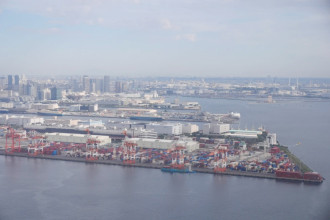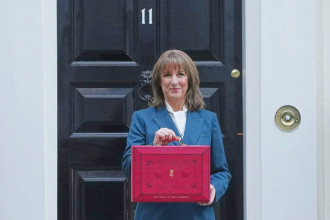-1755837504.jpeg)
The Friedrich Naumann Foundation for Freedom South Asia, together with its Regional Office Hesse/Rhineland-Palatinate, hosted a webinar titled ‘India: A Stable Democracy Leading the Global South’ on Wednesday. The discussion brought together policymakers, scholars and practitioners to reflect on India’s democratic journey, its global role and its partnership with Europe.
The session was moderated by Ghanshyam Tiwari, National Spokesperson for the Samajwadi Party, and featured an eminent panel: Dr SY Quraishi, former Chief Election Commissioner of India; Jhanvi Tripathi, Associate Fellow at the Observer Research Foundation; and Apurv Kumar Mishra, Consultant at the Prime Minister’s Economic Advisory Council. A keynote video message came from Sandra Weeser, former member of the Bundestag, and the programme concluded with remarks from Dr Carsten Klein, Regional Director of FNF South Asia.
In her keynote message, Sandra Weeser underscored a simple truth: democracy is never a given. Speaking during a study trip across South Asia, she reminded participants that democracy requires constant defence. “Even if you think that a political situation is stable, it can be unstable the next week,” she cautioned. For her, India’s importance lay not only in its scale but also in its dynamism. She stressed that Germany views India as a crucial partner, particularly in digitalisation, business development and cultural exchange.
-1755837505.jpeg)
-1755837504.jpeg)
Dr SY Quraishi opened the panel with a sweeping overview of India’s electoral achievements. He described India’s identity as inseparable from democracy: a deliberate choice made at independence that continues to define the republic. With nearly one billion voters – more than all of Europe and Africa combined – India’s electoral exercise is unmatched in scale.
What sets India apart, Dr Quraishi argued, is not just the numbers but the credibility of its elections. Results have rarely been disputed and the peaceful transfer of power has become a norm, unlike even in older democracies. He illustrated this with striking examples: polling stations set up for a single voter in Gujarat’s Gir Forest, or booths operating on remote islands of the Nicobar chain.
“These stories show the seriousness with which we treat every voter,” Dr Quraishi said. He recalled a state election where a candidate lost by a single vote – his wife’s missed ballot being the decisive factor. For Dr Quraishi, the lesson was clear: every vote matters, every voter counts. He concluded by emphasising that while India may face temporary challenges, its larger democratic fabric remains resilient. “From the largest democracy,” he urged, “we must aspire to become the greatest democracy.”
Turning to the Indo-Pacific and India’s role as an economic partner, Jhanvi Tripathi stressed the symbiotic link between democracy and economic growth. India’s robust institutions, she argued, have enabled both political participation and economic participation. The country’s mixed economic model – neither purely capitalist nor purely socialist – has functioned as a unique experiment and one that has worked.
Tripathi pointed out the vulnerabilities India faces in its export profile. Despite being a vast economy, India’s exports to the entire European Union barely match its exports to a single country, the United States. “That does not logically map for us,” she observed, suggesting that India must diversify and strengthen its trade partnerships with Europe.
She also highlighted India’s position as the second-largest global destination for greenfield investments and a leading consumer of artificial intelligence. These developments bring opportunities but also challenges, particularly around misinformation and electoral vulnerabilities. Yet, for her, the democratic process provides the mechanisms to navigate such disruptions, with leaders willing to listen to experts and adapt policy.
Apurv Kumar Mishra framed India’s democratic journey as an example with global resonance. At independence, he noted, democracy was not yet widely regarded as a morally superior form of governance. India’s choice to adopt and sustain democracy under difficult conditions helped universalise those values beyond the West, particularly in post-colonial societies.
Mishra underlined India’s diversity, symbolised in something as ordinary as its currency notes printed in multiple languages. This diversity, coupled with challenging geopolitical conditions, makes India’s democratic endurance remarkable. “It’s easier to be a democracy when you have oceans on two sides and Canada and Mexico as your neighbours,” he quipped, contrasting India’s environment.
Importantly, Mishra argued that Indian democracy has not weakened but deepened. Rising voter participation, increased representation of women, and robust electoral competition all point to a stronger democratic culture. He also linked democratic values to India’s economic rise, noting that the periods of greatest prosperity coincided with higher democratic engagement.
Mishra further drew parallels between India and Europe on questions of digital governance. On issues like data ownership and privacy, he observed, India and the EU share common values – striking a balance between state control and corporate dominance. This alignment, he suggested, strengthens India’s position as a collaborator with Europe in shaping the rules of the digital age.
In his concluding remarks, Dr Carsten Klein reflected on the broader significance of the discussion. He stressed that India’s democratic journey serves not only its own citizens but also offers lessons for other countries. India, he argued, can act as a bridge between the Global South and the Global North, advocating for a more inclusive and equitable international order.
For Dr Klein, the webinar reaffirmed that democracy is not static but a continuous project. India’s example demonstrates that stability and adaptability can coexist, and that democratic systems, while imperfect, remain the best guarantors of participation, pluralism and progress.
The webinar as a whole underscored both the achievements and the challenges of Indian democracy. From Dr Quraishi’s vivid stories of single-voter polling booths to Tripathi’s analysis of trade vulnerabilities, and Mishra’s reflections on India’s role in universalising democratic values, the discussion painted a rich picture of India’s global significance.
The presence of voices from Europe, such as Sandra Weeser and Dr Carsten Klein, added an important dimension. They highlighted how India’s democratic resilience is not just a domestic matter but a shared global interest. For Germany and Europe, India is a natural partner – not only in business and technology but also in defending and promoting democratic norms.
As the world confronts supply chain disruptions, geopolitical tensions and the rise of authoritarian models, India’s ability to combine size, diversity and democratic stability makes it a pivotal actor. The challenge ahead lies in ensuring that this stability is preserved, deepened and translated into inclusive growth and global leadership.
The webinar provided more than reflections on electoral practices or economic statistics. It offered a vision of democracy as lived experience – messy, diverse, but enduring. It reminded participants that democracy is not just about holding elections but about building trust, enabling participation and adapting to change.
India’s journey, as the panellists suggested, is far from complete. But its resilience, its scale and its example offer hope not just for its citizens but for democracies worldwide. In that sense, India does not merely lead the Global South – it represents a stable democratic anchor for an uncertain world.






